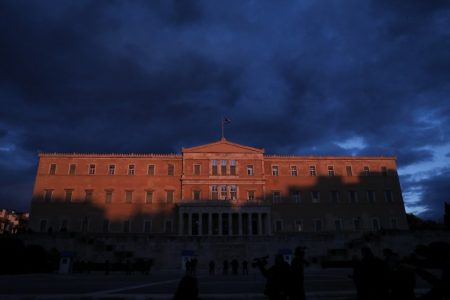The national debt of Greece increased to 321 billion euros during the first semester of 2013, which is greater than the Greek debt in 2009, before the crisis broke out. The debt increased by 16 billion in 2013 and 18 billion since June 2012, when debt was 303 billion euros.
Despite achieving a primary surplus, this development is worrying the financial staff of the government, while experts appear to be split as to whether the debt can be dealt with effectively without a new haircut.
Senior officers from the Treasury believe that the key problem is the debt and without a drastic cut, the budget will be very restricted and “tings will carry on being tough”. The interest paid on the loan is between 11 and 12 billion euros annually. The debt and interest rate have reached the levels before the PSI.
The Ministry of Finances appears to be more reserved, with talks of a moderate reduction of interest rates being able to reduce the interest. This could also address the problems that will arise from the maturing of bonds in 2014, when there are no more available funds to Greece, according to the current reform program.
The role of the IMF
The IMF has been pressuring Greece’s European lenders to accept an extension on the payment of the loans beyond 2014 and 2015. The extension of the repayment period appears to be certain, on condition that Greece achieves a primary surplus.
On the other hand, the IMF estimates that there is essentially no budget gap in 2014, since Greece is expected to produce a greater primary surplus than originally agreed upon in 2013 and 2014. Furthermore, Greece has an 11.5 billion euro surplus at the Financial Stability Fund that can be used without further increasing the debt.
Opposition criticizes government for debt increase
SYRIZA was highly critical of the government’s handling of the dramatic increase of the debt, stating that “speechless and stunned, both the Prime Minister in hiding and the Minister of Finances watch on as the debt skyrockets and await a new bail out”.
The opposition leaders claim that “today’s government lacks democratic authorization and has no right to carry on with its destructive work and agree to a new bail out and new measures”.
The government spokesman Simos Kedikoglou countered that “SYRIZA distorts simple maths” and suggested that the refinancing of banks created the temporary debt increase.





